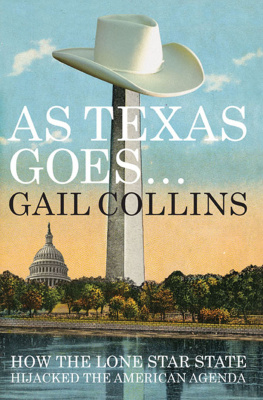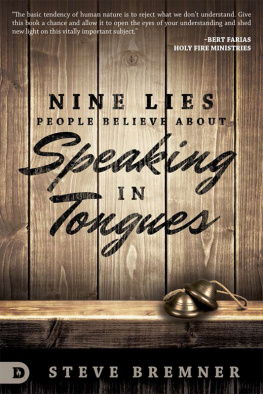When I first agreed to write a book about the history of political gossip, Monica Lewinsky was still an unknown intern and my goal, to be honest, was to tell the world about what happened to Grover Cleveland. (Its taken me a long time to accept the fact that Grover is always going to be an acquired taste, and that no one is ever going to turn him into an HBO miniseries.) But as the Clinton administration rolled on, a bigger picture began falling into place. Scorpion Tonguesthrough no prescience on my part whatsoeverwent off to the presses just days after the story about sex in the Oval Office first surfaced in the newspapers. It wasnt until the paperback version that I was able to retool the book a bit to reflect the fact that the American people turned out to be far more pragmatic about the Presidents wildly improper behavior than almost anyone had expected.
Looking back over what I had written, I realized that what had originally looked like a series of near-disasters on the part of misbehaving politicians was actually just the opposite. The American people had spent the last two centuries talking about character in their political leaders. But when it came to those same leaders private behavior, they actually seemed, more often than not, to be stone cold indifferent. For all their willingness to be shocked, and titillated, by gossip over who was doing what in the bars and bedrooms and closets of after-hours Washington, their real bottom-line requirements for keeping someone in office were minimal: Their elected officials should do what they were hired to do. What they did on their own time generally had little or no bearing on the matter. All they want is that you dont shove it in their faces, said the mayor of a particularly conservative big city when I asked her whether the fact that everybody in town knew that she was gay had posed any political problems.
During the Clinton impeachment, all the time Id spent researching Scorpion Tongues really did turn out to be a gift that kept on giving. I was writing for the editorial board of the New York Times, and there were many, many days when it felt as if wed said everything that could possibly be said about presidents and bad behavior. It was then that my capacity to compare whatever was going on to something that had happened to William Henry Harrison or Warren Harding really came into play. Could you just writeone of those Grover Cleveland things? my editor asked wearily, on more than one occasion.
When I was offered the chance to update the book for a new edition, it seemed like the least I could do in return. And so much had happeneda whole campaign full of rumors about George W. Bushs reckless youth and another that frequently appeared to be about nothing but John Kerrys war record. Rudy Giuliani had gone from being the guy who told a press conference he was getting divorced before he told his wife to the hero of 9/11. The governor of New Jersey announced he was gay, and it became clear that about half the state already knew the story, including the name of his lover. And there was Hillary Clinton, gearing up for a White House run while my own paper came up with an extremely well-researched estimate of exactly how much time she and Bill actually spent in the same residence. It had been fifteen years since we first got to know the Clintons, but we still couldnt quite put our finger on how that marriage worked. And we still wanted to know. Short of Franklin and Eleanor, there surely has been no other married political couple with the same ability to frustrate and fascinate.
This is not a story about the great issues in American government. While I was working on Scorpion Tongues, I had a colleague who was writing a book about the late nineteenth-century monetary crises that led to the creation of the income tax, and we realized that between us, we knew everything about fin de sicle American financial policy and high-level sex scandals. It was somewhat embarrassing to admit which one was my area of expertise. But the Scorpion Tongues story still touches on the things that move us and scare us most deeplysex, race, religion, and sin. Its a chance to view American political history from the ground, and to get to know the American voter on a whole new level.
And in the end, well always have Grover.
Chapter 1
The Road to Hillarys Lamp
1. Hillarys Lamp
Suspicions have already been, um, aroused
Inaugural week, 1993: Barbra Streisand led the Celebrity Salute to the new president. Barney the purple dinosaur was the star of the parade. The crowds were so dense that people tried to hoist their kids on the Portosans to get a better view. Bill Clinton, contrary to his supporters worst fears, did not talk too long after he took the oath of office. The nation, which had been feeling a bit bedraggled both economically and emotionally, was unaware that it was on the edge of one of the biggest boom periods in history. The economic boom. The Internet boom. And a boom in political gossip. Michael Harrington, the editor of a magazine for the burgeoning talk radio industry, would later look back on the Clinton presidency as a Golden Era. Hes just a guy that hasI could go on for hours, Harrington enthused. Bill Clinton is a package with lots to talk about. He embodied peoples hopes. Brought them down. Raised them up. Down. Up. The mans whole way of governing is similar to a talk radio program.
On the day it all began, the insiders exchanged inaugural rumors about who was getting what job and everyone else talked about who was going to what party. The gossip du jour, however, was the story of Hillary Clinton and the lamp. The First Lady, it was whispered, had thrown a lamp at her husband during a fight in the White House. Sometimes the argument was said to have started because the president-elect ogled one of the celebrities at the pre-inaugural show. Sometimes it was about whether or not Hillary Clintons offices would be located in the critical White House West Wing. Frequently, the story included a subplot about the antagonism between Mrs. Clinton and her Secret Service guards. It remained confined to the nations capital for about as long as it took to say e-mail. Up in New York City, Hillary and the lamp were soon a big topic at a party for a retiring city detective. Investigators from the Treasury Departments Bureau of Alcohol, Tobacco and Firearms who had dropped by to wish the detective good-bye entertained the guests with the story, which they said theyd heard from friends in the Secret Service. Those guys must really hate the Clintons, said a lawyer who had been at the affair, and then called his own circle of acquaintances to spread the tale along.
When it came to talk about the private lives of politicians, the Clinton administration was going to take the nation where no one had gone before. Before it was over, Americans would wind up knowing more about the sexual preferences of this president than many of them knew about those of their closest friends. The lamp story was an innocent tale compared to what was going to come later. But the speed with which it traveled across the country and the avidity with which it was passed around were a portent of things to come.











